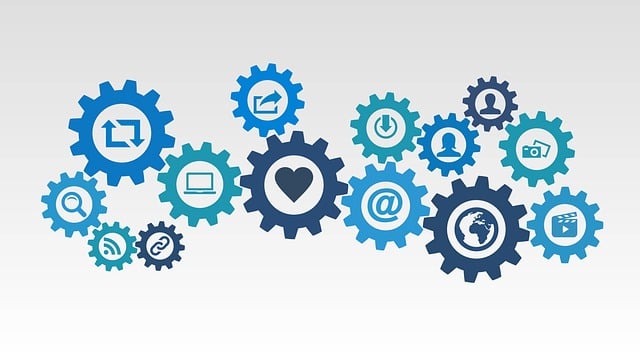In today's digital era, AI-powered systems for automotive service optimization are transforming car repair shops into efficient diagnostic centers. These technologies analyze vehicle data swiftly and accurately identify issues, reducing manual diagnostics time and enhancing customer satisfaction through faster turnaround times. AI algorithms predict potential failures and recommend proactive maintenance, minimizing unexpected breakdowns and streamlining service appointments. By implementing AI-driven automation in processes like scheduling, inventory management, and diagnostic reporting, shops boost efficiency, reduce human errors, shorten turnaround times, and optimize resource utilization. Additionally, AI chatbots provide instant support, fostering trust and long-term relationships through personalized recommendations based on driving patterns and vehicle history.
In today’s digital era, car repair shops are leveraging AI-powered systems for automotive service optimization. From efficient car repair diagnostics to automated workflows and personalized customer interactions, AI is revolutionizing the way workshops operate. This article explores best practices for integrating AI, showcasing how these innovations enhance service quality, streamline processes, and improve customer experiences. By adopting these strategies, car repair shops can stay competitive and meet the evolving demands of drivers.
- Leveraging AI for Efficient Car Repair Diagnostics
- Optimizing Service Processes with Automated Workflows
- Enhancing Customer Experience through Personalized Interactions
Leveraging AI for Efficient Car Repair Diagnostics

In today’s digital era, leveraging AI-powered systems for automotive service optimization is transforming car repair shops into more efficient and accurate diagnostic centers. These advanced technologies can swiftly analyze vast amounts of vehicle data, including sensor readings, historical maintenance records, and real-time performance metrics, to pinpoint issues with remarkable precision. By integrating AI into their workflows, repair shops can reduce the time spent on manual diagnostics, leading to quicker turnaround times for customers.
Furthermore, AI algorithms can predict potential failures and recommend proactive maintenance, minimizing unexpected breakdowns. This predictive capability not only enhances customer satisfaction but also reduces the strain on shop resources by streamlining service appointments. With AI-driven diagnostics, car repair shops can offer more personalized and efficient services, solidifying their position as leaders in automotive service optimization.
Optimizing Service Processes with Automated Workflows

Car repair shops can significantly enhance their efficiency and productivity by optimizing service processes with automated workflows enabled by AI-powered systems for automotive service optimization. These intelligent solutions streamline routine tasks, such as scheduling appointments, managing inventory, and generating diagnostic reports, allowing staff to focus on more complex repairs and enhancing overall customer satisfaction.
By integrating AI into their operations, repair shops can reduce human error, improve turnaround times, and better utilize resources. Automated workflows also enable data-driven decision-making, providing insights into service trends, identifying areas for improvement, and ultimately contributing to the shop’s bottom line.
Enhancing Customer Experience through Personalized Interactions

In today’s digital era, car repair shops can enhance customer experience by integrating AI-powered systems for automotive service optimization. These systems enable personalized interactions, such as automated appointment scheduling and intelligent vehicle diagnostics, which streamline processes and reduce wait times. Customers appreciate the convenience of easy booking and quick, accurate assessments of their vehicle’s needs.
By leveraging AI, repair shops can offer tailored recommendations and proactive maintenance plans based on individual driving patterns and vehicle history. This level of personalization not only builds trust but also fosters long-term customer relationships. Additionally, AI-driven chatbots and virtual assistants can provide instant support, answering common queries and offering real-time updates, thereby improving overall satisfaction.
By adopting AI-powered systems for automotive service optimization, car repair shops can transform their operations. Leveraging AI for diagnostics enhances efficiency and accuracy, while automated workflows streamline service processes, reducing wait times and operational costs. Personalized interactions with customers improve satisfaction and loyalty. By integrating these best practices, repair shops can stay competitive in a rapidly evolving industry, ensuring they deliver exceptional service every time.
